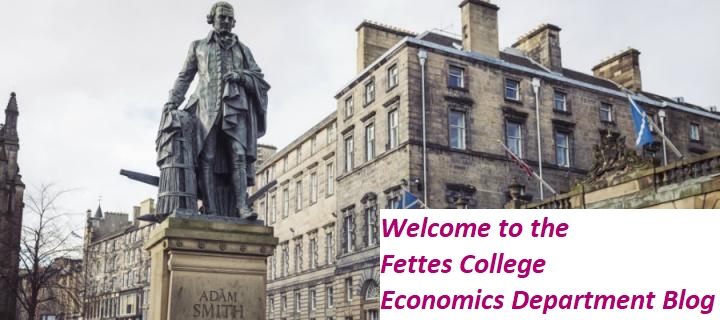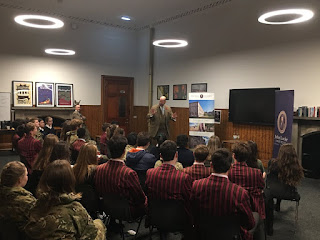Lecture by Mr Martin Cox, Director of John Locke Institute - Wednesday 8th November by Larry W
On Wednesday, we welcomed Martin Cox from the John Locke Institute in
Oxford to give two short lectures to 32 Fettesians. The first lecture was on the
subject of ‘Game theory’, which was essentially a study of the mathematical and
psychological models of conflict and cooperation between intelligent rational
decision-makers. Using the rivalry between America and USSR during the cold war
as an example, Mr Cox explained the reasons behind some of the decisions made
on both sides and the considerations for these decisions from multiple
different aspects. An example being that during the Cold War, America wanted
Russia to be as strong as America militarily, so Russia is less likely to pull
the trigger of war, as they feel less threat from America and an equilibrium is
reached. He concluded by saying that the Game Theory can be applied to other
aspects in life, such as economics and different branches of sciences.
The second part of lecture was an analysis over the morality of
capitalism. Usually, capitalism is criticised for being immoral, as it can be
argued that people aren’t born with equal chances and a gain made by a person
usually results in the loss of another person. However, Martin Cox argued that
capitalism is moral in the macro picture, as the individuals who benefit from
capitalism are often the ones who made the world a better place. He used Bill
Gates as an example: although Bill Gates made huge amounts of profit from
Microsoft and its softwares, however his individual profits are tiny compared
to the benefits it had created for the population who chose to pay for his
products. Martin Cox stated that under a capitalist economy, businesses would generally
design products that benefit the population, so they can gain reputation and
profits as people recognise their products as being beneficial and reliable. He
also stated that within a capitalist system, people have more freedom to choose
what they want to do, although it might not still be the ideal choices, it's
better than systems such as communism where people have no work incentive in
what they are doing because they weren't offered a choice.
By Larry W


Comments
Post a Comment